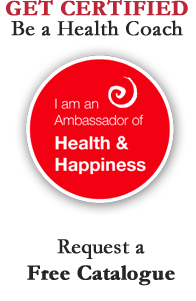
Benefits of Nightime Intermittant Fasting for Healthy Aging and Hormone Balance
Part of your hormone balance, healthy lifestyle, and healthy aging plan should include intermittent fasting.
Studies show that:
skipping a few meals,
waiting longer in-between meals,
and having a lower calorie meal day (about 500 calories in 24 hours) once a week–each help with improving the aging process.
People associate fasting with not eating or drinking for a specific period of time: for example participation in a 24 hour fast.
Many religions encourage fasting as a means to rest the body and cleanse the soul.
Water fasts (consuming water only) and juice fasts (consuming fresh organic juice only) for specific periods of time are also common fasts. This allows the body to adequately rest from the hard work of digesting food since liquids are easily assimilated in the gut.
Personally, I have tried them all; and I have found a simplier way to fast:
I allow my body to rest from digestion, balance calories, burn off glucose and insulin, balance hormones, buffer stress hormones, and maintain a healthy body weight along with a healthy metabolism,
WHILE I AM SLEEPING 🙂
Yes, I fast at night, while I sleep.
Brilliant, right?
Simply put: Fasting for periods of time between eating is called “intermittant fasting”–I like to call it Night-time fasting.
Afterall, Intermittant fasting simply means that you obstain from food for a set period of time. It doesnt have to be daytime fasting to be considered fasting.
Intermittant fasting has many definitions.
For the purposes of hormone balance, insulin and cortisol balance, and healthy aging, this is how I define intermittant fasting:
Obstaining from food for 16 hours daily (at least 5 days a week at minimum), while drinking water only during the fasting time. (Stay hydrated–this helps the body cleanse out the toxins).
Fasting is not common to our modern cultures, who have been taught by personal trainers to eat every 3-4 hours in order to “burn calories” and “prevent the body from going into starvation mode.”
By contrast, It was common-place generations ago when my grandparents sat down to dinner at 6 pm and didnt eat again until the farm animals were fed the next morning–usually no sooner than 8 am. This was a natural and simple 14 hour + fast–they were fasting which allowed for digesting, healing, repairing, and they didnt even know it.
Eating constantly is a poorly understood practice that people believe to be true only because they have heard it over and over again. They must eat. All the time.
They also associate fasting with deprivation. What will happen if my stomach growls? What will happen if I actually feel real hunger? And I going to die?
They find it uncomfortable to do, they panic, they worry, so they don’t do it. Ever.
Sadly, with these modern day philosophies and misconceptions–
“All you can eat” restaurants,
“Eat every 4 hours” or you will starve your body,
Go to the gym and work out, and then drink a 400 calories protein shake before bedtime (really?)
-And the need for constant comfort eating, we now have a growing epidemic (yes, epidemic) of adult onset diabetes, heart disease, obesity, autoimmune diseases, and cancer.
Research shows us the exact opposite of what your personal trainer is telling you, especially as we age:
Intermittant (night-time) fasting is not only good for you, it’s great for you.
Your body needs to you to fast (aka REST) in order to perform important metabolic functions, ESPECIALLY AS WE AGE like:
Digestion
Cleanse the Liver
Cleanse the blood, kidneys and lymphatics
Balance blood sugar and insulin
Burn fat
Regulate metabolism
And Rest. Rest. Rest. Digestion is really hard work!
It also helps you live longer.
Simply put:
The body was not built to digest 24 hours a day.
Everyday.
7 days a week.
30 days a month.
365 days a years.
Over your lifetime.
Your body requires a break, a rest, a period of rejuvenation, and time to do important repair work to complete projects like digesting your dinner, etc.
Many important metabolic functions require that the body be fasting in order to do their jobs well. When people are constantly eating, their bodies never have opportunity to do these jobs since all they can focus on is: digesting, digesting, digesting.
Remembers, In generations and decades past, dinner was at sunset after working on the farm, and people fasted until morning when they would “break their fast” with a healthy breakfast. This was often at least a 12-13 hour intermittant fast on a daily basis, an they were not obese or struggling with the health issues of our modern day.
Presently, most people that I talk with only fast for 8-10 hours, many fast for even less–Eating up until 10 pm or later at night, then eating again by 6 am the next morning, having been told they shouldn’t skip breakfast since it is the most “important meal of the day”.
Breakfast is only the “most important meal of the day” if you have fasted for at least 12 hours AND are eating healthy food choices.
Research shows that it can improve your health and reduce your cancer risk, when you participate in night-time fasting.
A recent study* of 818 women all diagnosed with breast cancer between the ages of 27 and 70, none of which had diabetes, showed that women who participated in a less than a 13 hour nightly fast (no food after dinner for less than 13 hours), increased their risk of breast cancer reoccurrance by 36%.
Where as those who fasted for 13 or more hours each night had a lower reoccurance risk. And the risk decreased if the fasting extended only 2 hours longer to 15 hours.
The study concluded that, “a prolonged nightly fasting interval could be a simple and feasible strategy to reduce breast cancer reoccurrence.” (JAMA Oncology, 2016 Mar 31).
So if intermittant fasting, in this study of at least 13-15 hours a day, can reduce your risk of breast cancer reoccurance, one has to ask: would fasting up to 16 hours a day reduce your risk of cancer all together?
We know that Intermittant fasting lowers blood sugar and insulin levels. And that lower blood sugar and insulin levels are better for our body functions (high sugar and insulin levels are toxic and inflammatory, and are known to promote cancer).
Knowing that female-related cancers are sugar-loving cancers, and love high blood sugar, insulin and hemogloblin A1C levels, it is important for women to understand the amazing benefit of night time fasting. Simply fasting for more than 15 hours, to keeping blood sugars lower, is an important nutrition , wellness, and weight loss tool that women can easily implement in their wellness plan.
When you don’t eat for an intermittant period of time, and your body isn’t constantly doing the work of detox and digestion, great things happen to your body.
For example, your body initiates important cellular repair processes and changes hormone levels to make stored body fat more accessible.
Benefits of intermittant-fasting, specifically related to lowering blood sugars, include:
- Reduces body weight (in particular, belly fat)
- When the body burns up glucose during fasting, it burns fat for energy.
- Fasting lowers insulin levels, which helps burn fat.
- Lowers blood pressure and reduces risk of heart attack and stroke
- Fasting reduces blood sugars, which reduces plaque build-up in blood vessels
- When plaques build up, blood vessels become stiff and less flexible (high blood pressure)
- Plaques can break off causing ischemic events due to plaques blood flow:
- heart attacks (when plaques lodge in heart vessels and prevent blood flow) or strokes (when plaques break off and lodge in the brain prevent blood flow)
- Reduces risk for cancer
- Cancers love sugar and thrive in high-sugar environments, especially breast and ovarian cancers
- Cancer love inflammation and an impaired immune system which is a result of inflammation and oxidative stress from blood sugars
- Balances important healthy-aging and disease fighting hormones
- Human Growth Hormone plays an important role in sugar, insulin, and fat metabolism.
- Human Growth Hormone increases as much as 4-5 times when fasting.
- Higher levels of Human Growth Hormone as associated with muscle building, bone growth, and fat loss.
- Higher levels of Human Growth Hormone are associated with healthy aging.
- Reduces oxidative stress (cellular inflammation)
- Sugar increases C-Reactive protein which is a marker for cellular stress
- Stressed cells replicate poorly, and die faster; Reducing CRP levels allow cells to replicate in a healthy way (preventing disease), and allow cells to live longer (healthy aging)
- Intermittant fasting lowers CRP levels and promotes healthy aging.
- Reduces cholesterol, triglycerides and LDL–all markers for heart disease
- Reduces Type 2 Diabetes
- Fasting reduces blood insulin levels
- Improves brain health
- The brain needs fasting to make new neurons
My favorite intermittant fasting fact of all, is that it promotes healthy aging. In many rat studies, rats that fasted intermittantly lived longer. Specifically, those that fasted every other day lived 83% longer.
And those that lived on an intermittent fasting diet, also had the same longer lifespan found in those who lived on a very low calorie diet restriction.
Personally, I fast intermittantly minimally 15 hours a day, and have worked up to 16 hours a day as my personal wellness goal.
This is something that took time for me to build-up to; starting with a 12 hour fast and increasing it slowly overtime to allow my body to adjust to the need to burn fat better, and balance blood sugar better.
But now it’s simple and easy for me. Here is what I routinely do, and I challenge you to do the same:
I don’t eat after 6pm, and I don’t eat again until 10am (this is a 16 hour fast).I stay well hydrated during the fast.
I also fast for 24 hours once a month.
And I do 24 hour liquid juice or smoothie fast once a week (usually mid-week, like Wednesday because that works best for my schedule), and it’s usually 5-6 quarts of green juice.
I still drink water with lemon throughout the day and throughout my fast, ALWAYS, and when obstaining from food from 6pm-10am for hydration. Remember, we are taking about a food fast (no-food) not a religious fast (no-food, no-water), so stay hydrated.
When I break my fast, I do it with a green juice or a green smoothie–something full of antioxidants, vitamins, protein, and minerals that can help my body repair and rebuild.
Food is preventive medicine. But only When it’s clean and whole and real.
Not eating food all the time is also preventive medicine. When you allow intermittant (nightime) fasting to help your body heal and repair it is anti-disease, and anti-aging medicine.
Add intermittant (nightime) fasting to your healthy aging routine and wellness plan and reap the benefits.
Yes, food matters.
How much you eat, when you eat, and how long your fast from food between meals matters.
It all matters.
If you are new to fasting, or have blood sugars issues, start by slowly lowering your carbs first, and be sure to follow your health care provider for assistance. Type 2 diabetes is reversible with diet, exercise and weight loss, but you will need some health-care support especially at the start, to manage medication needs and glucsoe and insulin adjustments, etc.
*As with all diet, nutrition, and healthy aging plans, consult your primary care provider particularly if you are prone to higher blood sugar and insulin levels and are blood sugar/insulin lowering medications. This does not take the place of medical advise, and I am not your doctor. See site disclaimer.
Live Live Optimally,
Kristie
 Kristie is a wife and mother of 4 and an athlete. She has been working in healthcare for more than 25 years. Kristie’s goal is to assist her patients to achieve and maintain an exceptional level of health and life-balance. She successfully blends prevention, optimization, hormone therapy, and age management with balanced and healthy living into her progressive wellness and integrative medical practice.
Kristie is a wife and mother of 4 and an athlete. She has been working in healthcare for more than 25 years. Kristie’s goal is to assist her patients to achieve and maintain an exceptional level of health and life-balance. She successfully blends prevention, optimization, hormone therapy, and age management with balanced and healthy living into her progressive wellness and integrative medical practice. 












Leave a Reply